 Hauptmann Gerd Wiesler (Ulrich Mühe) is a Stasi surveillance and interrogation expert. Want a house bugging? Want to know a suspect’s movements? Want that suspect broken when you finally bring him in? Wiesler’s your man. He knows that the innocent will reformulate their answers while the guilty will recite the same cover story, the same lies, word-for-word. He knows how to pace an interrogation. He knows just how much sleep-deprivation to apply. He’s so good that he gives classes to the next generation of Stasi agents.
Hauptmann Gerd Wiesler (Ulrich Mühe) is a Stasi surveillance and interrogation expert. Want a house bugging? Want to know a suspect’s movements? Want that suspect broken when you finally bring him in? Wiesler’s your man. He knows that the innocent will reformulate their answers while the guilty will recite the same cover story, the same lies, word-for-word. He knows how to pace an interrogation. He knows just how much sleep-deprivation to apply. He’s so good that he gives classes to the next generation of Stasi agents.He speaks in quiet, precise tones. His face is devoid of expression or emotion; impenetrable. He’d be a shit-hot poker player if he weren’t such a Party man. Wiesler is in it for the ideological purity of it. Not so his boss, Oberstleutnant Anton Grubitz (Ulrich Tukur), a pragmatic career man whose latest promotion sees him beholden to Minister Bruno Hempf (Thomas Thieme).
Hempf is the corpulent, corrupt politician in excelsis. When he orders Grubitz to dig up some dirt on playwright Georg Dreymann (Sebastian Koch), it’s not because Dreymann has been known to associate with reactionary writer Paul Hauser (Hans Uew-Bauer) or is a close personal friend of recently blacklisted director Albert Jerska (Volkmar Kleinert) – for all his association with these individuals, Dreymann remains at one remove from their politicking, and tows the party line – no, it’s because Hempf wants him out of the way so he can stake his claim on Dreymann’s actress girlfriend Christa-Marie Sieland (Martine Gedeck), a woman he’s already co-erced into sexual favours.
This is East Germany, 1984, where They (ie. the Minister Hempfs of this world) decide who writes plays, who directs them, who acts in them; where They revoke even the privileges of the artist to practice his or her art – in a shockingly cynical scene, Grubitz tells Wiesler about a report he’s received on the most effective punishments for artists; ‘effective’ meaning a total eradication, post-release, of their artistic capabilities – should that artist fall out of favour.
Naturally, it’s Wiesler whom Grubitz entrusts with surveilling Dreymann. Wiesler’s not too happy when Grubitz reveals that the operation isn’t political, it’s simply about “getting a rival out of the way”. This isn’t what Wiesler joined up for. Nevertheless, he follows orders … for a while, anyway. It doesn’t take him long to realise that Dreymann’s as clean as a whistle. Hempf’s oleaginous pursuit of Christa-Marie sickens Wiesler and eventually he intervenes, persuading her away from a rendezvous with Hempf and back to Dreymann.
Hereafter, Wiesler’s professionalism nosedives as he falsifies reports and turns a blind eye when the hitherto unmotivated Dreymann rails against the system following Jerska’s suicide.
Essentially, ‘The Lives of Others’ is the story of two awakenings. Dreymann’s is political and takes the form of an article, which Hauser helps him get published in the West, about the high incidence of suicide in East Germany and how the Department of Records haven’t catalogued any statistics on suicide since 1977. Wiesler’s is emotional/humanitarian; a falling from his eyes of the scales of blind adherence to the Party. It takes the form of an exponential realisation, as he listens in on the world of an artist, that there are ideas and concepts and a whole world of art that expresses them which it has never occurred to him before to believe possible.
This realisation – which takes root just as his disaffection with the job, personified by Hempf and his abuses of power – leads him to a course of action which will have serious ramifications. Meanwhile Grubitz, under mounting pressure from Hempf to discredit Dreymann, takes matters in hand by having Christa-Marie arrested.
And that’s all I’m going to reveal of the plot. Not only does the film move inexorably forward with the momentum and inevitability of a Jacobean tragedy, but writer/director Florian Henckel von Donnersmarck takes it into unexpected realms in the final reel. The majority of the action takes place over a short period of time in 1984. An extended coda leaps forward to 1989 and the fall of the Berlin Wall, then to 1991, then to 1993. It’s a little disorientating on first viewing, but it’s done for a purpose. With its scenes of surveillance, secrets and clandestine meetings, it’s all too easy to latch onto the voyeuristic undertones of ‘The Lives of Others’ – particularly with the gorgeous Martine Gedeck in a major role – but the coda, a mirrored study in aftermath, reinforces what the film is truly about: the invisible yet parallel relationship between Wiesler and Dreymann.
And while it’s as politically and historically charged as ‘Downfall’, ‘The Lives of Others’ transcends, in its final stretch, the merely political and says things about art, inspiration and the human condition. It’s von Donnersmarck’s first film, he was just twenty-eight when he made it, and it’s a straight-up masterpiece.
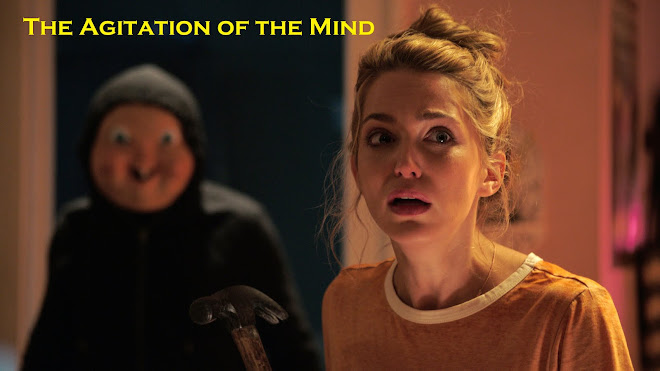


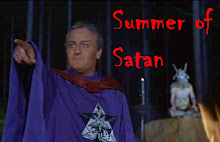
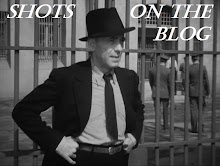

















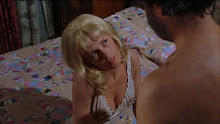
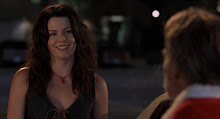








No comments:
Post a Comment